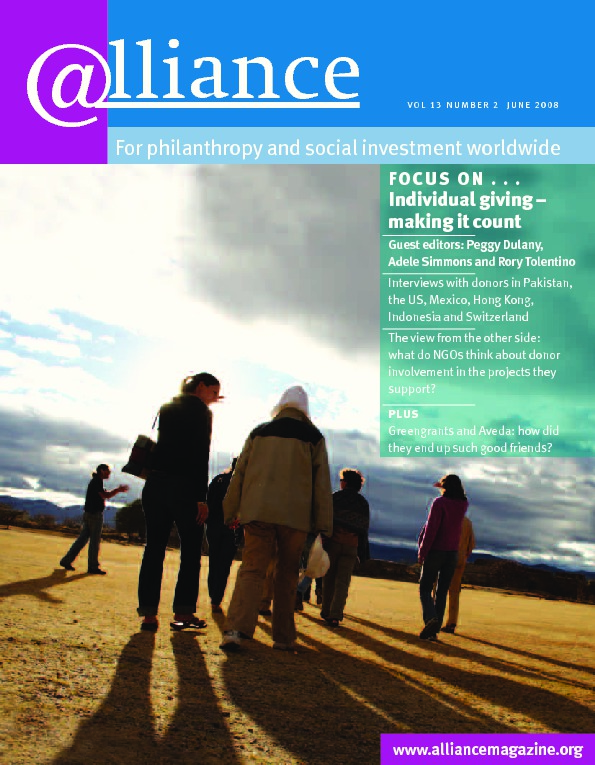For Ikram Mian, it all starts with the family: the philanthropic ideals he inherited from his parents from early childhood permeate his whole life. ‘It’s in our value system,’ he says, ‘it’s in our blood. To keep on helping people, to keep helping society. It was always there in our heart and soul.’
As a senior Pakistani civil servant for 42 years, his father, Asghar Mian, now 91, devoted his life to public service and obtaining ‘justice for the people’, while his mother, Fatima, now 84, also well educated, spent much of her time establishing schools, colleges, community centres and orphanages in District Sialkot in the years after the war with India in 1965.
Giving has long been part of Ikram Mian’s family life. Each year the family donates money to ‘the most deserving hundreds of people and many charities in need of support’. When his wife Sabrina moved to Pakistan in 1986, she joined the American Women’s Club and spent her time raising money for charities in Karachi.
But it was not until seven or eight years ago that Ikram Mian began to undertake philanthropic work on his own account in his parents’ home village in Punjab. First he set up a medical clinic then, five years ago, he began building new rooms, one a year, for the local high school where his father was the first ever grade 10 graduate so the children would no longer have to study outside under the trees. The family also provided scholarships and special awards for bright local children and clean water coolers for all four schools in the village.
But the most ambitious plan is to set up a hospital and research institute in Lahore for treating blood disorders with the help of his younger brother Dr Shariff, who has a PhD in haematology from the University of Manchester Medical School. The Asghar Ali Mian Trust Welfare Hospital will take five to eight years to establish and they will need to raise money as the family resources will not be sufficient. There has been a lot of interest from overseas Pakistanis. Mian’s ‘dream’ is that this will become the regional hospital and a research institute for blood disorders for South Asia and the Middle East.
Finally, there is the Shaheera Trust, started by his brother’s family in memory of their daughter Shaheera, who died tragically young. The Trust now supports two schools in Lahore, one for children with learning disabilities and the other for underprivileged children, supported by donations from his family and friends. Mian hopes the success of these schools will inspire others to follow suit. In Pakistan, he says, ‘we need more organized charities and institutions that can add more value to society than giving direct to individuals can.’
Apart from his family, where does he find support and inspiration in all these activities? Until recently he mainly compared notes with friends from well-to-do families who were involved in philanthropic activities themselves, but two and a half years ago he joined the Synergos Institute’s Global Philanthropists’ Circle. ‘I get a lot of inspiration and practical help from going to New York to the GPC, especially from Peggy Dulany and all the Synergos team.’ He also cites the example of Bill Gates, the Carnegies, the Rockefellers. ‘In the US many people are ready to leave their wealth to the country and that gives me a lot of encouragement.’
Ikram Mian also appreciates the way the GPC encourages his children. In 2006 he took the whole family to a GPC meeting in London. His daughter Kiran, studying in London, is now involved in raising funds for DIL Trust UK to support schools for underprivileged girls in poor areas of Pakistan.
Is there anything in the way of advice or help that is missing? No, he insists, the GPC association has been very helpful. ‘Only my hectic business schedule gets in the way,’ he adds, echoing Cherie Nursalim’s similar comments.
What changed seven years ago to make him start founding new organizations rather than supporting existing charities? Again, the answer boils down to time. In 1996 he left LTV Group and the family started their own financial services group, the AMZ Group. ‘When working for foreign banks you work 12-14 hours a day,’ he explains. ‘Once we became our own bosses we had more time to devote to this.’
But there is always more to be done. ‘I still feel unhappy in my heart when I visit villages,’ he says. ‘People are not living as they should be. Things should have improved much more, and only collective giving and sharing by the rich, privileged classes can make a difference in society.’
For more information
Contact Ikram Mian Chief Executive, AMZAssets Mangement Ltd. Email ikram.mian@amzassets.com or visit www amzassets.com






Comments (0)